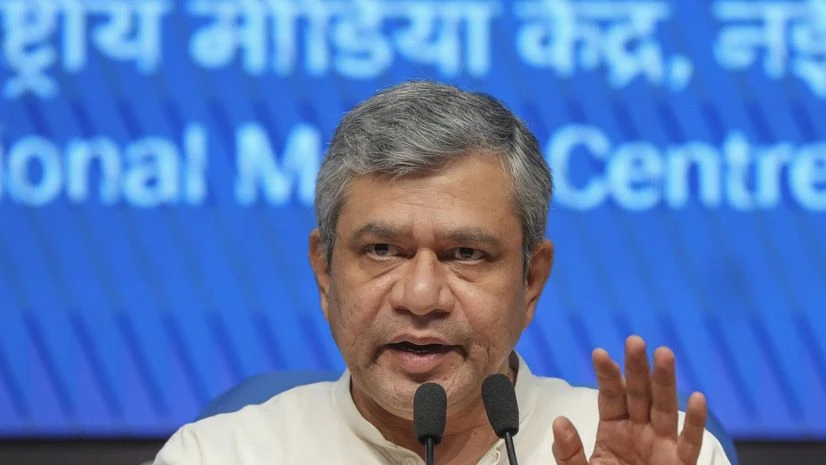)
Union Minister Ashwini Vaishnaw (Photo: PTI)
The government on Thursday approved National Mission on Edible Oils-Oilseeds with an outlay of Rs 10,103 crore to make India self-sufficient in cooking oils.
India imports more than 50 per cent of its annual edible oil requirement.
Click here to connect with us on WhatsApp
“With an aim to make India self reliant in oilseed production in next 7 years, Cabinet approves National Mission on Edible Oils- Oilseeds (NMEO-Oilseeds) for 2024-25 to 2030-31 with outlay of Rs 10,103 crore,” the government said on social media platform X.
The mission aims to increase primary oilseed production from 39 million tonnes in 2022-23 to 69.7 million tonnes by 2030-31, the government said.
“It seeks to extend oilseed cultivation by an additional 40 lakh hectares,” it added.
India imports palm oil from Indonesia and Malaysia while soyabean oil is imported from Brazil and Argentina. Sunflower comes mainly from Russia and Ukraine.
Classical language status to five languages
The Union Cabinet also approved conferring the status of classical language to Marathi, Pali, Prakrit, Assamese and Bengali languages.
“This is a historical decision and this decision goes very well with Prime Minister Narendra Modi and the NDA government’s philosophy of taking ride in our culture, taking pride in our heritage and taking pride in all the Indian languages and the rich heritage that we have,” Information and Broadcasting Minister Ashwini Vaishnaw said at a cabinet briefing.
The classical languages serve as a custodian of Bharat’s profound and ancient cultural heritage, embodying the essence of each community’s historical and cultural milestone, the government said.
The Government of India decided to create a new category of languages as “classical languages” on October 12, 2004 declaring Tamil as classical language and thereafter Sanskrit, Telugu, Kannada, Malayalam and Odia languages were given classical language status.
A government statement said that a proposal from the Maharashtra government in 2013 was received in the ministry requesting classical language status to Marathi, which was forwarded to the Linguistics Experts Committee (LEC). The LEC recommended Marathi for classical language.
Chennai Metro Rail Project Phase II expected to be completed by 2027
Cabinet has also approved the proposal of the Ministry of Housing & Urban Affairs for Chennai Metro Rail Project Phase-II, comprising three corridors.
The total length of the approved lines will be 118.9 km with 128 stations.
The project completion cost is Rs 63,246 crore and is planned to be completed by 2027. Once Phase-II is fully operational, Chennai will have a total metro rail network of 173 km.
The Phase II Project comprises three corridors, from from Madhavaram to SIPCOT for a length of 45.8 Km with 50 stations, from Lighthouse to Poonamalle Bypass for a length of 26.1 Km with 30 stations, and from Madhavaram to Sholinganallur for a length of 47 Km with 48 stations.
Phase-II will add approximately 118.9 Km of new metro lines. The Corridors of Phase-II connect North to South and East to the West of Chennai, passing through the major influence areas at Madhavaram, Perambur, Thirumayilai, Adyar, Sholinganallur, SIPCOT, Kodambakkam, Vadapalani, Porur, Villivakkam, Anna Nagar, and St. Thomas Mount, connecting large number of industrial, commercial, residential and institutional establishments, and also providing effective Public Transport for the work force engaged in these clusters and connectivity to various parts of the city.
It will extend connectivity to rapidly growing areas like Sholinganallur, which serves as a hub for the south Chennai IT corridor. By connecting Sholinganallur via ELCOT, the metro corridor will cater to the transportation needs of the burgeoning IT workforce.
First Published: Oct 03 2024 | 8:53 PM IST


































